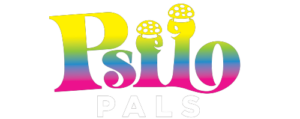Hallucinogenic Mushrooms in Therapeutic Settings: Emerging Research and Potential
- November 24, 2023
- 6:08 am

Notable Elements
Magic Mushroom Research Resurgence: Recent years have seen a resurgence of interest in the therapeutic potential of hallucinogenic mushrooms, driven by emerging research on their effects.
Psychedelic History: These mushrooms have a rich history of use in various cultures for spiritual and medicinal purposes, including indigenous communities in Canada.
Therapeutic Potential: Psilocybin, found in these mushrooms, shows promise in treating mental health conditions such as depression, anxiety, addiction, and PTSD.
Positive Research Findings: Studies have demonstrated significant reductions in depression and anxiety symptoms, as well as potential for addiction treatment and PTSD relief through psilocybin-assisted therapy.
Legal Considerations in Canada: Currently, the possession and sale of hallucinogenic mushrooms are illegal in Canada, but there are exceptions for religious use and exemptions for terminally ill patients.
Hope for the Future: Recent exemptions for terminally ill patients using psilocybin highlight a potential shift in attitudes towards these mushrooms for therapeutic purposes.
Call for Further Research: The article emphasizes the need for policymakers and regulators to consider the emerging evidence and potentially allow safe and regulated access to hallucinogenic mushrooms for therapeutic use in Canada.
Introduction
In recent years, there has been a growing interest in the potential therapeutic benefits of hallucinogenic mushrooms, also known as magic mushrooms or psilocybin mushrooms.
These naturally occurring fungi contain the psychoactive compound psilocybin, which has been used for centuries by indigenous cultures for spiritual and medicinal purposes. However, due to their classification as Schedule III controlled substances in most countries, including Canada, research on the therapeutic potential of hallucinogenic mushrooms has been limited.
Nevertheless, emerging studies are beginning to shed light on the potential benefits of these substances in therapeutic settings, sparking a renewed interest in their exploration. This article aims to provide an overview of the current research on hallucinogenic mushrooms in therapeutic settings, with a specific focus on the Canadian context.
Understanding Hallucinogenic Mushroom
Hallucinogenic mushrooms, also known as magic mushrooms, are psychedelic substances derived from certain species of fungi. They contain the compound psilocybin, which is responsible for their mind-altering effects.
When ingested, psilocybin converts into psilocin in the body, which interacts with serotonin receptors in the brain. This results in altered perception, hallucinations, sensory distortions, and changes in mood, thoughts, and consciousness.
Hallucinogenic mushrooms have a long history of use in various cultures for spiritual, religious, and recreational purposes. They have been used ceremonially by indigenous peoples in Central and South America for centuries. In recent years, interest has been resurgent in their potential therapeutic uses, particularly in the treatment of mental health conditions such as depression, anxiety, and PTSD.

However, it’s important to note that the use of hallucinogenic mushrooms carries potential risks and can have unpredictable effects on individuals. The intensity and duration of the psychedelic experience can vary depending on factors such as dose, potency, set (mindset), and setting (environment). Additionally, some people may experience anxiety, paranoia, or a challenging psychological experience, commonly referred to as a “bad trip.”
Historical Use and Cultural Significance
The use of hallucinogenic mushrooms can be traced back thousands of years, with evidence of their consumption found in ancient artifacts and cave paintings. Indigenous cultures in various parts of the world, including Canada, have incorporated these mushrooms into their spiritual and healing practices.
For example, the Mazatec people of Mexico have a long history of using psilocybin mushrooms in rituals to connect with the divine and explore consciousness. Similarly, First Nations communities in Canada have also engaged in the ceremonial use of hallucinogenic mushrooms for spiritual purposes.
Psychedelic Renaissance and Current Research
After a long period of prohibition and limited research, there has been a resurgence of interest in the therapeutic potential of hallucinogenic mushrooms in recent years. This renaissance, often referred to as the “psychedelic renaissance,” has been fueled by a growing body of evidence suggesting the potential benefits of these substances in treating various mental health conditions. Some of the areas of research include:
- Depression and Anxiety: Several studies have demonstrated promising results in using psilocybin-assisted therapy for the treatment of depression and anxiety, including in individuals with terminal illnesses. A landmark study conducted by researchers at Johns Hopkins University in 2016 found that a single dose of psilocybin led to a significant reduction in anxiety and depression symptoms in cancer patients. These findings have prompted further investigation into the therapeutic potential of psilocybin for other mental health conditions, such as treatment-resistant depression.
- Addiction: Emerging research suggests that psilocybin may hold promise in the treatment of addiction, particularly in the context of substance use disorders such as alcohol and tobacco addiction. Studies have shown that psilocybin-assisted therapy can lead to decreased cravings and increased feelings of connectedness and insight, which may aid in the recovery process. In Canada, where substance abuse is a significant public health issue, further research exploring the efficacy of psilocybin-assisted therapy for addiction treatment is crucial.
- PTSD: Post-traumatic stress disorder (PTSD) is another area of mental health where psilocybin-assisted therapy is investigated. Preliminary research suggests that psychedelic experiences induced by psilocybin can help individuals process traumatic memories and reduce the symptoms of PTSD. Canadian veterans, who often face challenges in accessing potent treatment, may benefit from further research in this area.
Another study published in the Journal of Psychopharmacology in 2020 examined the use of psilocybin-assisted therapy for treatment-resistant depression. The results showed that 71% of the participants saw a clinically significant reduction in depressive symptoms after two sessions of psilocybin-assisted therapy, and 54% achieved remission.

These promising findings have led to increased interest in exploring the therapeutic use of hallucinogenic mushrooms. Research institutions, such as the Imperial College London and the Usona Institute in the United States, are conducting further studies to investigate safety, efficacy, and long-term effects.
The potential therapeutic benefits of hallucinogenic mushrooms are attributed to their ability to change brain connectivity, enhance introspection and self-reflection, and increase emotional and psychological flexibility. The altered state of consciousness induced by psilocybin can lead to a heightened sense of connection, empathy, and spirituality, which may contribute to therapeutic outcomes.
Also Read : After Effects of a Psilocybin Experience
Legal Considerations in Canada
In Canada, hallucinogenic mushrooms, including those containing psilocybin, are classified as “controlled substances” under the Controlled Drugs and Substances Act. Possession, production, and sale of these mushrooms are illegal and can result in criminal charges.
However, an exemption exists for the religious use of hallucinogenic mushrooms for the members of the Santo Daime church, a Brazilian-based religion that includes the sacramental use of hallucinogens.
Despite the legal restrictions, there have been efforts to challenge the status quo and facilitate research on the therapeutic potential of hallucinogenic mushrooms in Canada.
The Canadian Minister of Health gave four terminally ill patients an exemption in August 2020, enabling them to take psilocybin as part of their end-of-life treatment. This landmark decision has provided hope for future research and access to psilocybin-assisted therapy.
Conclusion
Although hallucinogenic mushrooms face legal constraints in Canada, emerging research on their therapeutic potential suggests a need for further exploration. The psychedelic renaissance has ignited interest in the potential benefits of these substances for mental health conditions such as depression, anxiety, addiction, and PTSD.
The recent exemption granted to terminally ill patients highlights the potential shift in attitudes towards hallucinogenic mushrooms. As further research unfolds, it is essential for policymakers and regulators to carefully consider the evidence and potential benefits to allow safe and regulated access to these substances for therapeutic purposes.
Ultimately, the inclusion of hallucinogenic mushrooms in therapeutic settings could potentially offer new hope for individuals suffering from treatment-resistant mental health conditions in Canada.

Hi! I’m Jacob Hawthorne, a passionate medical student dedicated to exploring the fascinating world of psychedelics, particularly magic mushrooms (commonly known as shrooms). With a deep interest in their therapeutic potential and profound effects on the human mind, I aim to provide accurate and evidence-based information about shrooms in the Canadian context.
